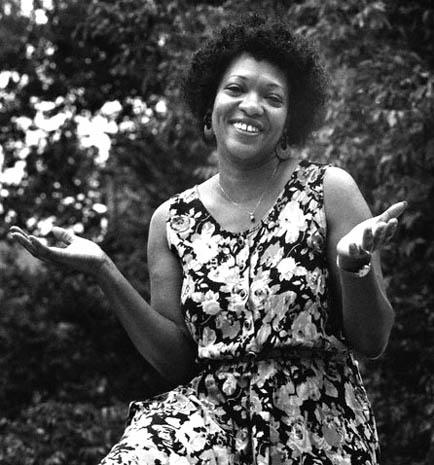
Rita Frances Dove is an American poet and author. She was appointed Poet Laureate Consultant in Poetry to the Library of Congress in 1993, the second African American to be appointed, and received a second special appointment in 1999.Dove is the second African American to receive the Pulitzer Prize for Poetry in 1987, and the Poet Laureate of Virginia, 2004 – 2006.
Besides her Pulitzer Prize, she has received numerous literary and academic honors, among them 22 honorary doctorates, the 1996 National Humanities Medal / Charles Frankel Prize, the 3rd Annual Heinz Award in the Arts and Humanities in 1997,[5] and most recently, the 2006 Commonwealth Award of Distinguished Service in Literature, the 2008 Library of Virginia Lifetime Achievement Award, the 2009 Fulbright Lifetime Achievement Medal and the 2009 Premio Capri (Italy). From 1994-2000 she was a senator (member of the governing board) of the national academic honor society Phi Beta Kappa, and she is currently a chancellor of the Academy of American Poets. She has been a featured poet at the Geraldine R. Dodge Poetry Festival on many occasions, most recently in 2010.
Adolescence II by Rita DoveAlthough it is night, I sit in the bathroom, waiting.Sweat prickles behind my knees, the baby-breasts are alert.
Venetian blinds slice up the moon; the tiles quiver in pale strips.
Then they come, the three seal men with eyes as round
As dinner plates and eyelashes like sharpened tines.
They bring the scent of licorice. One sits in the washbowl,
One on the bathtub edge; one leans against the door.
“Can you feel it yet?” they whisper.
I don’t know what to say, again. They chuckle,
Patting their sleek bodies with their hands.
“Well, maybe next time.” And they rise,
Glittering like pools of ink under moonlight,
And vanish. I clutch at the ragged holes
They leave behind, here at the edge of darkness.
Night rests like a ball of fur on my tongue.
as she paused just inside the double
glass doors to survey the room, silvery cape
billowing dramatically behind her.What’s this,
I thought, lifting a hand until
she nodded and started across the parquet;
that’s when I saw she was dressed all in gray,
from a kittenish cashmere skirt and cowl
down to the graphite signature of her shoes.
“Sorry I’m late,” she panted, though
she wasn’t, sliding into the chair, her cape
tossed off in a shudder of brushed steel.
We kissed.Then I leaned back to peruse
my blighted child, this wary aristocratic mole.
“How’s business?” I asked, and hazarded
a motherly smile to keep from crying out:
Are you content to conduct your life
as a cliché and, what’s worse,
an anachronism, the brooding artist’s demimonde?
Near the rue Princesse they had opened
a gallery cum souvenir shop which featured
fuzzy off-color Monets next to his acrylics, no doubt,
plus beared African drums and the occasional miniature
gargoyle from Notre Dame the Great Artist had
carved at breakfast with a pocket knife.
“Tourists love us.The Parisians, of course”–
she blushed–”are amused, though not without
a certain admiration . . .”
The Chateaubriand
arrived on a bone-white plate, smug and absolute
in its fragrant crust, a black plug steaming
like the heart plucked from the chest of a worthy enemy;
one touch with her fork sent pink juices streaming.
“Admiration for what?”Wine, a bloody
Pinot Noir, brought color to her cheeks.”Why,
the aplomb with which we’ve managed
to support our Art”–meaning he’d convinced
her to pose nude for his appalling canvases,
faintly futuristic landscapes strewn
with carwrecks and bodies being chewed
by rabid cocker spaniels.”I’d like to come by
the studio,” I ventured, “and see the new stuff.”
“Yes, if you wish . . .”A delicate rebuff
before the warning: “He dresses all
in black now.Me, he drapes in blues and carmine–
and even though I think it’s kinda cute,
in company I tend toward more muted shades.”
She paused and had the grace
to drop her eyes.She did look ravishing,
spookily insubstantial, a lipstick ghost on tissue,
or as if one stood on a fifth-floor terrace
peering through a fringe of rain at Paris’
dreaming chimney pots, each sooty issue
wobbling skyward in an ecstatic oracular spiral.
“And he never thinks of food.I wish
I didn’t have to plead with him to eat. . . .”Fruit
and cheese appeared, arrayed on leaf-green dishes.
I stuck with café crème.”This Camembert’s
so ripe,” she joked, “it’s practically grown hair,”
mucking a golden glob complete with parsley sprig
onto a heel of bread.Nothing seemed to fill
her up: She swallowed, sliced into a pear,
speared each tear-shaped lavaliere
and popped the dripping mess into her pretty mouth.
Nowhere the bright tufted fields, weighted
vines and sun poured down out of the south.
“But are you happy?”Fearing, I whispered it
quickly.”What?You know, Mother”–
she bit into the starry rose of a fig–
“one really should try the fruit here.”
I’ve lost her, I thought, and called for the bill.


